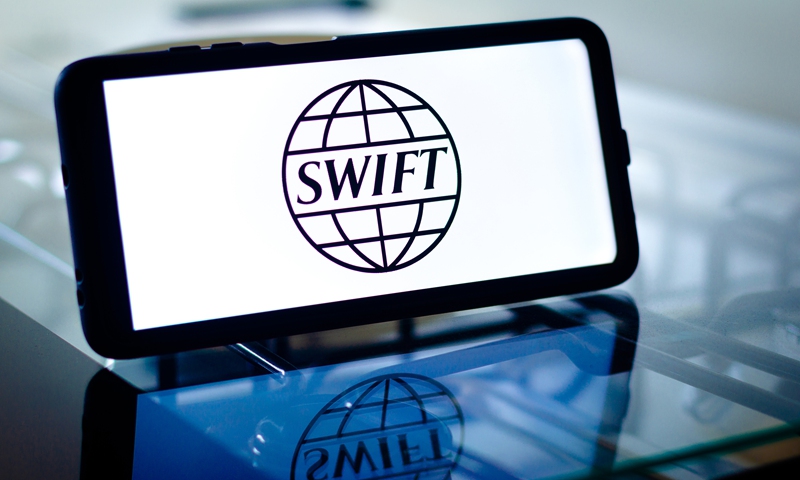SWIFT not irreplaceable, but substitution requires considerable preparation: former PBC chief

SWIFT Photo: VCG
The international financial transaction system known as SWIFT is not irreplaceable, but replacing it will require a great deal of preparation, given SWIFT's efficiency and scope, Zhou Xiaochuan, former head of China's central bank, said on Saturday at an annual financial forum in Beijing.
Speaking at the 2022 Tsinghua PBCSF Global Finance Forum in Beijing, the former governor of the People's Bank of China (PBC) said that cross-border payments in global trade can theoretically be made without going through SWIFT. If SWIFT is widely used as a tool for sanctions, others will surely find other messaging conduits to continue doing trade, he said.

Photo: Courtesy of Tsinghua PBCSF Global Finance Forum
Global financial payment or messaging systems, should they slide into some "Cold War" patterns, would bring damage to everyone, Zhou commented.The West's adoption of a financial "nuclear option" of using SWIFT to sanction Russia is a wake-up call for China's financial development. "We must get prepared," tapping the digital economy to ensure financial and trade security, Liu Liange, chairman of Bank of China, said at the forum.
SWIFT is a messaging platform, instead of a cross-border international payment system. It handles a lot of communications prior to payments being executed, and the following payments and settlements go through the systems of each country, Zhou said.
China's Cross-Border Interbank Payment System (CIPS), meanwhile, is designed for the cross-border payments involving the yuan, making it the cross-border payment, settlement and clearing system of the Chinese currency. Of course, it also can be used by some other mainstream currencies, but so far there are not many of them using it, Zhou noted.
Last year, the number of transactions CIPS handled hit more than 3.3 million, up by over 50 percent from the prior year. It processed roughly 80 trillion yuan ($12.56 trillion) worth of transactions in 2021, a surge of over 75 percent from 2020, Jiefang Daily reported at the end of February.
Participants in CIPS have hit 1,259 and the system's coverage includes 103 countries and regions. Overseas institutions taking part in the system are 649, accounting for 52 percent of the total, according to the report.
By comparison, "an average of 42 million payments and securities transactions were processed using our FIN message service per day last year," SWIFT disclosed in early February.
As an important platform of the global financial system, SWIFT needs to be maintained by all parties so that it can be appropriately serve free and fair trade, as well as the security of the logistics and supply chains, Dong Shaopeng, a senior research fellow at the Chongyang Institute for Financial Studies at Renmin University of China, told the Global Times on Sunday.
Its advantages cannot be used to crack down on certain economies or undermine the global trading system. However, the US clearly has used it as a sanctions tool against economies that have different values or different views on global governance, such as Russia and Iran.
Since weaponizing SWIFT could block capital flows of various countries, seeking an alternative option is reasonable, which would also promote a fairer usage of SWIFT in the future, Dong added.
Zhou, a frequently cited voice in central bank digital currency issues, also said at the forum that the cross-border use of China's central bank digital currency e-CNY can't be ruled out, but the possibility would focus on its use in cross-border retail.
The e-CNY is not meant to replace the US dollar and it "can't be easily used as military weapon," he said.
